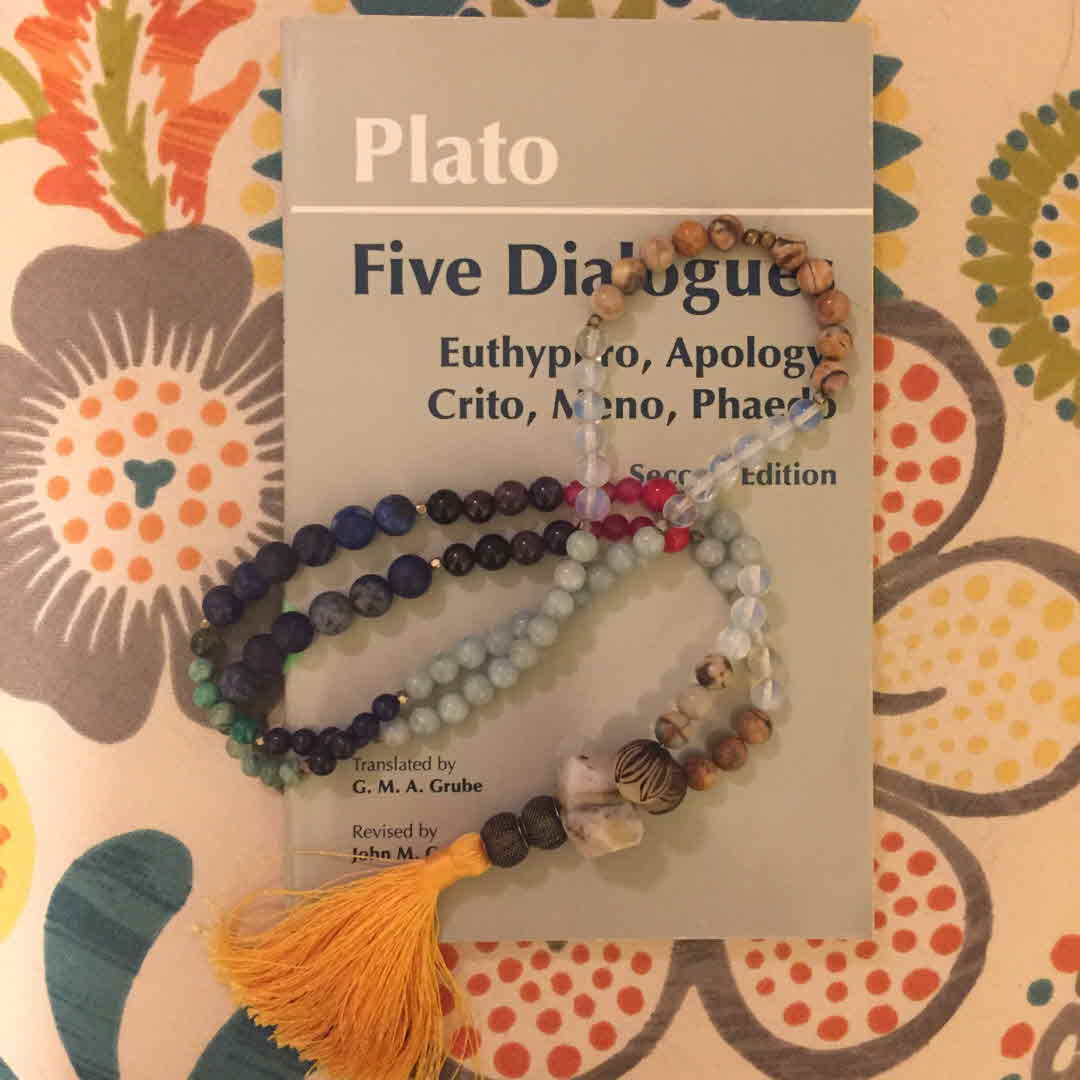Five Dialogues: Euthyphro, Apology, Crito, Meno, Phaedo | Plato
|| Plato's Five Dialo|gues |||| Euthyphro, Apology, Crito, Meno, Phaedo |||| Complete || The dialogue contains an ancient statement of the social contract theory of government.*Meno*Meno (/?mi?no?/; Greek: ?????, Men?n) is a Socratic dialogue scripted by Plato. The first part of the work is written in the Socratic dialectical style and Meno is reduced to confusion or aporia.*Phaedo*Ph�do or Phaedo (/?fi?do?/; Greek: ??????, Phaid?n, Greek pronunciation: [p?a�d??n]), also known to ancient readers as On The Soul,[1] is one of the best-known dialogues of Plato's middle period, along with the Republic and the Symposium. The philosophical subject of the dialogue is the immortality of the soul. It is set in the last hours prior to the death of Socrates, and is Plato's fourth and last dialogue to detail the philosopher's final days, following Euthyphro, Apology, and Crito.Translated (in English) By : Benjamin Jowett***The Apology of Socrates*** (Greek: ???????? ?????????, Apolog�a Sokr�tous; Latin: Apologia Socratis), by Plato, is the Socratic dialogue that presents the speech of legal self-defence, which Socrates presented at his trial for impiety and corruption, in 399 BC.*Euthyphro*Euthyphro (/?ju???fro?/; Ancient Greek: ????????, romanized: Euthyphr?n; c. 399-395 BC), by Plato, is a Socratic dialogue whose events occur in the weeks before the trial of Socrates (399 BC), between Socrates and Euthyphro.*Crito*Crito (/?kra?to?/ KRY-toh or /?kri?to?/ KREE-toh; Ancient Greek: ?????? [kr�t??n]) is a dialogue by the ancient Greek philosopher Plato. It depicts a conversation between Socrates and his wealthy friend Crito regarding justice (??????????), injustice (??????), and the appropriate response to injustice. Socrates thinks that injustice may not be answered with injustice, and refuses Crito's offer to finance his escape from prison. It appears to attempt to determine the definition of virtue, or arete, meaning virtue in general, rather than particular virtues, such as justice or temperance.
